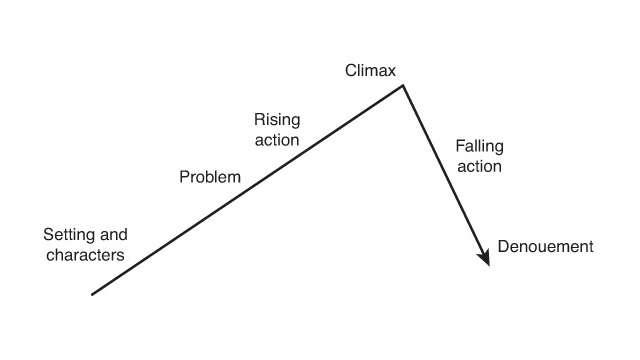Judges’ Tactics: How Playwriting Judges Score Superior Scripts
Written by Andy Haynes
July 27, 2017
I’ve been a playwright for many years now and during that time I’ve been asked several times to judge playwrighting at thespian competitions for both district and state level festivals. Over the years I’ve seen several common (and easily correctable) mistakes come up time and time again. If you’re thinking about writing a play for a competition, check out these simple tips and tricks that can move you up from an excellent to a superior and maybe even help you grab that “Best of Show!”
Follow the formatting guidelines.

The number one easily fixable mistake I always see is not following the formatting guidelines. For each competition, the format rules should be posted online and will include things like font size, page length, title pages and more. Find those rules and follow them to the letter! Proper format will score you some easy points, make your script look more professional, and make it easier for the judges to read (and enjoy) it.
Make sure your play is stageable.

Remember that you’re writing a play that is meant to be performed. On a stage you can’t use camera tricks and fancy editing like you can in a movie. How easily you play can be performed is what we call “stageability.” You can do a lot of things on a stage but if what you’ve written is physically impossible, you’re going to lose points!
Don’t rush the falling action!

At its most basic level, your play should have an inciting incident, rising action, a climax, falling action, and a denouement. Very often the element that is lacking the most is the falling action. The falling action gives the audience a chance to process the consequences of the climax before the play reaches the conclusion. Going straight from the climax to the end doesn’t give your audience a chance to breathe and can leave them feeling jarred and uncomfortable.
Have others read your play out loud!

You’ve finished your play and are ready to turn it in. There’s one last thing you need to do. Invite some friends over and have them read the play out loud to you. Listen to how they sound when they read it and take careful notes. You’ll hear them stumble over typos and get caught up in dialogue that doesn’t sound natural. Take these as cues to revisit your play and fix any trouble spots before you send it off for critique.
Relax but be ready!

When it’s finally competition time and it’s your turn to present your play, try to relax, you’ve already done the hard work so you’re mostly just here to listen to any feedback. But remember, even though the judges have already read and scored your play, those scores aren’t yet final. They can still change your score based on how you answer any questions they may have. Being professional and prepared may just net you an extra point or two!
Need some advice? We’ve got you covered.
- 10 Basic Rules of Stage Combat (That Keep Everyone Safe)
- 5 Advantages of Learning Stage Combat
- Don’t Be a Diva: Common Pitfalls and How to Avoid Them
- 9 Articles of Clothing Every Thespian Should Keep In Their Wardrobe
- What Makes an Actor Website WOW?
- “Is my attitude not getting me roles?” And Other Essential Questions for Actors
- 6 Steps to Memorizing Shakespeare
- 10 Tricks to Staying Healthy All Season Long
- What Does It Take to Break Into Voiceovers?
- 5 Tips for Nailing Your College Music Theatre Audition
- 10 Tips on Owning the Room at Competition
- How to Balance Theatre and Coursework
- The 10 Secrets of Great Understudying
- 10 Items Every Actor Should Carry in Their Rehearsal Bag
- 10 Items Every Dancer Should Keep in Their Rehearsal Bag
